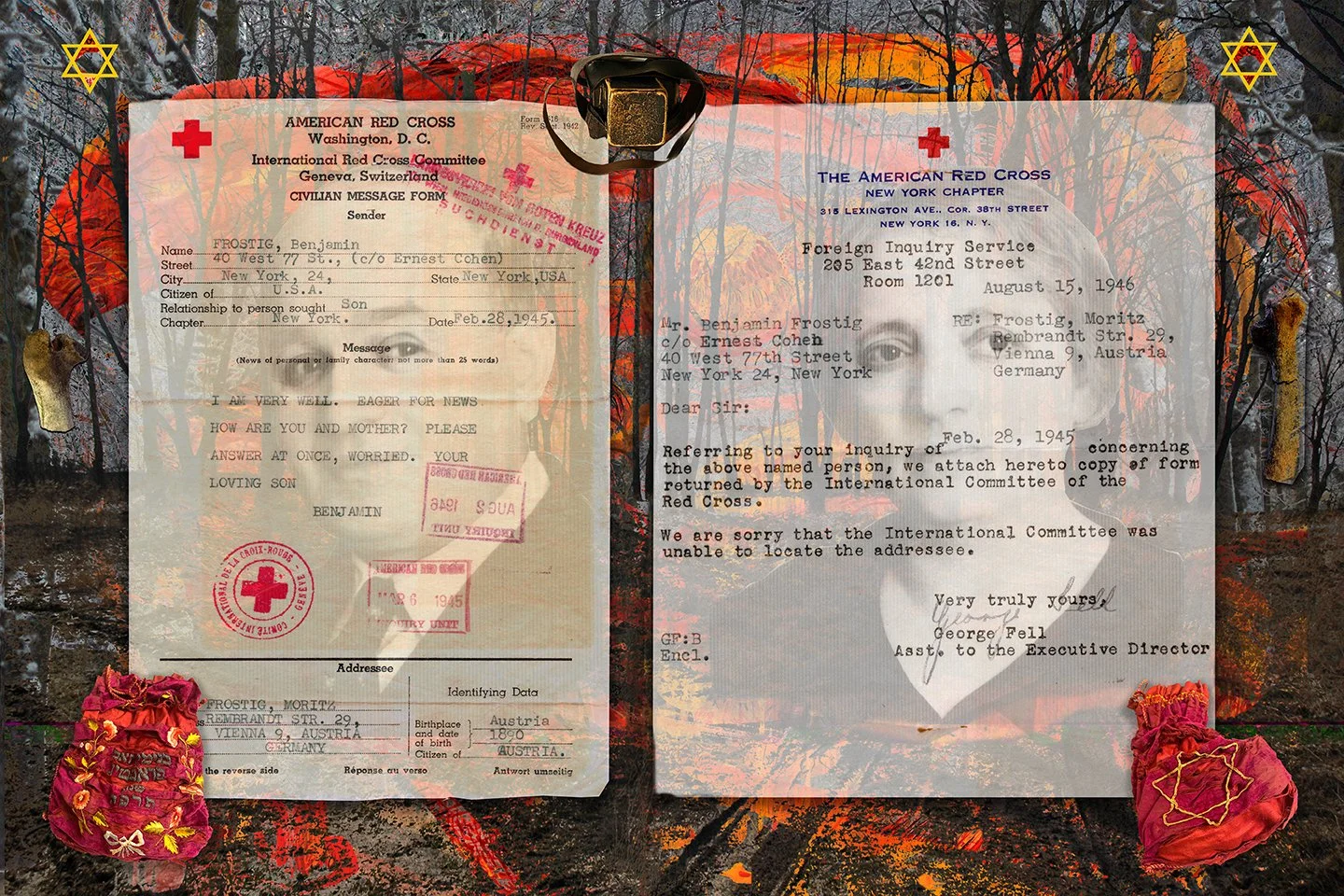The Holocaust in Personal and Public Memory
Karen Frostig “Whereabouts Unknown.” 2024. Digital Montage, archival inkjet print. 30 x 45”.
In 2006, I began to research my father’s history of exile from Vienna. At the time, I knew very little about my grandparents. I was unaware of extended family living in Vienna and Poland, killed during the Holocaust. I was also clueless about Riga and the Jungfernhof concentration camp, an unremembered camp responsible for the murder of close to 4,000 Austrian and German Jews. In 2007, I used digital technologies to transcribe this research into a series of memory panels. I integrated photos with letters and paintings of carnage, to create a layered composite of new knowledge about the past. “Whereabouts Unknown” is a recently developed panel within a collection of 18 panels about exiled memory.
In December 1941, four deportation trains brought 3985 Austrian and German Jews to Jungfernhof in subzero temperatures. At Jungfernhof, an abandoned site lacking all forms of shelter and food, conditions were deplorable. Many deportees died or were killed within the first few weeks of arrival.
In the panel “Whereabouts Unknown,” I insert my grandparents’ unused passport photos into the landscape at Jungfernhof. The bones, retrieved by scientists from the earth in search of a missing mass grave, read as a symbol of hope. I include my father’s tefillin and the tattered embroidered tefillin bag, indicative of my family’s Jewish identity, within the apocalyptic landscape of the camp. Two pages retrieved from a stash of correspondence, documents my father’s futile attempt to find his parents after the war.
The panel depicts my grandparents as witnesses to their own murder. There are no surviving documents or photos portraying the profane brutality of the camp, from hanging, to rape, to unprovoked beatings, starvation, and humiliation.
Karen Frostig. 70 Years of Estrangement. (2008). Digital Montage, archival inkjet print. 30 x 45”.



